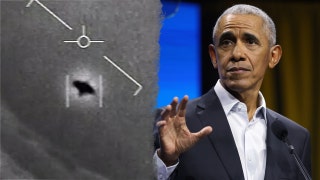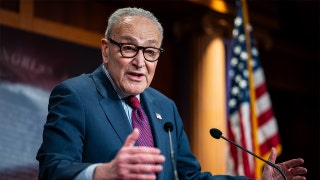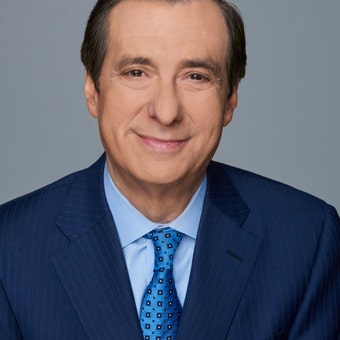I’ve been trying to come up with a way to capture where we are as a country, a year after one of the darkest days in our history.
I now say January 6th was a double tragedy.
It was an assault on our democracy that we all saw play out in chilling fashion, on screens and smartphones, in real time.
And it has morphed into a deeply polarizing debate over what happened, how bad it was, who is to blame, and whether the investigation of those events is excessively partisan.
In short, 1-6 turned out to be the polar opposite of 9-11, a tragedy that brought our country together, while the shameful events of last January have led to a more divided America.
In some ways, our hate-filled polarization is worse than the death and destruction inflicted at the Capitol, because it strikes at the heart of our republic.
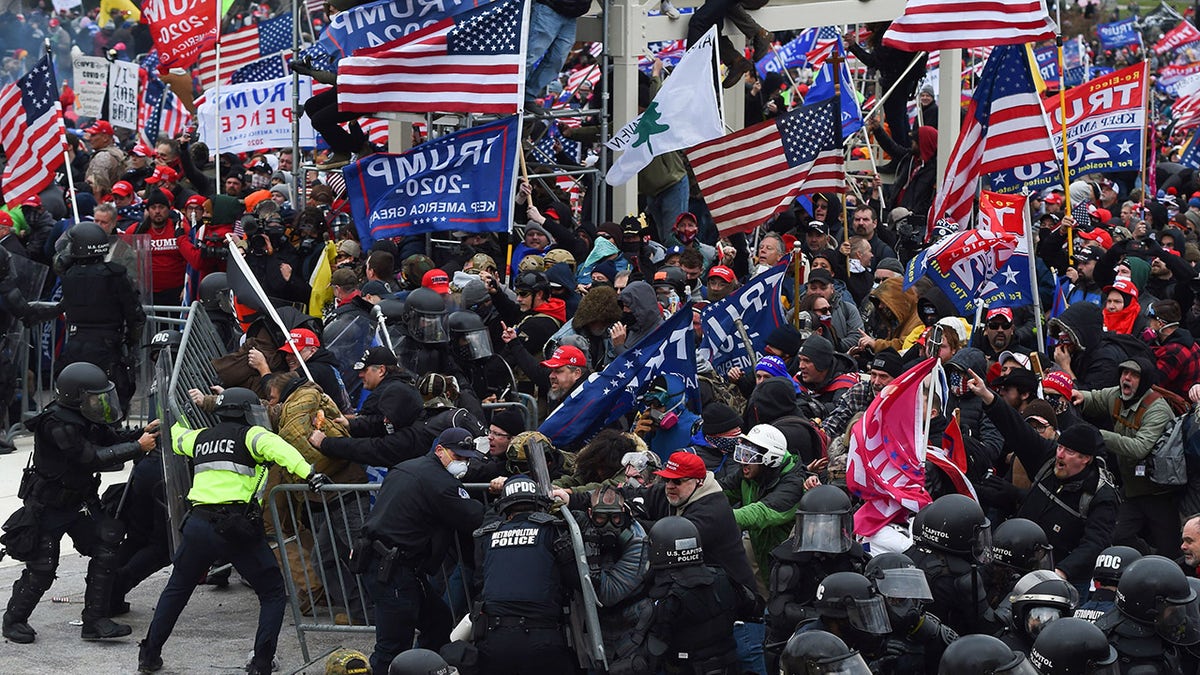
Trump supporters clash with police and security forces as they push barricades to storm the US Capitol in Washington D.C on January 6, 2021. (Photo by ROBERTO SCHMIDT/AFP via Getty Images)
How else can we regard a Washington Post/University of Maryland poll finding that 40 percent of Republicans and 41 percent of independents–along with 23 percent of Democrats–believe violence against the government can at times be justified?
REPORTER’S NOTEBOOK: CHAD PERGRAM REMEMBERS JAN. 6 ATTACK ONE YEAR LATER
People offer their own rationales for when such conduct would be acceptable–tyranny, corruption, vaccine mandates–but they are basically trying to rationalize armed rebellion. We still have a Constitution that enables a majority of voters to throw the bums out. (And yes, January 6th was inextricably tied to Donald Trump’s unproven claims of a rigged election, and there is concern about whether state legislatures could toss out democratic results next time.)
In that vein, the Post poll found that 88 percent of Democrats and 74 percent of independents say there is no evidence of widespread fraud, but 62 percent of Republicans say there is.
In the survey, about 7 in 10 Americans say Joe Biden’s election was legitimate, but nearly 30 percent say it was not–and that includes 58 percent of Republicans.
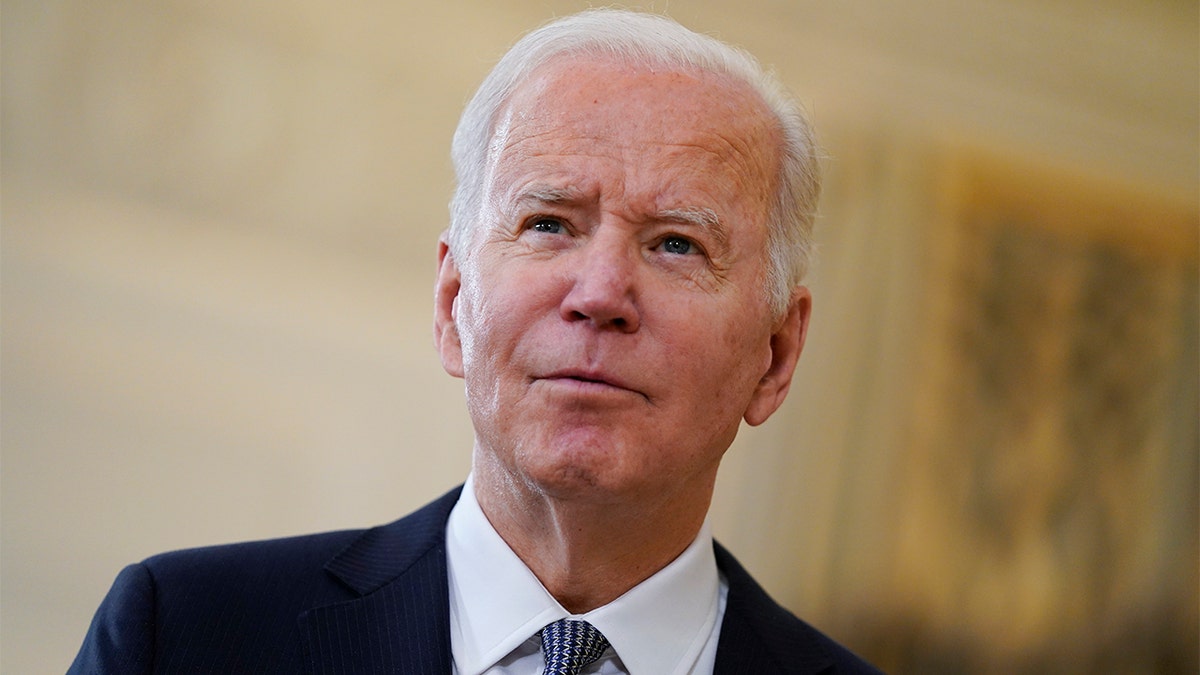
President Biden listens to a reporters question after delivering remarks on the November jobs report, in the State Dining Room of the White House, Friday, Dec. 3, 2021, in Washington. (AP Photo/Evan Vucci) (AP Photo/Evan Vucci)
When it comes to the attack on the Capitol, the attempt at revisionist history is just surreal, given that the events were recorded from endless angles and that more than 725 people have been charged. We also know that President Trump did not ask his supporters to stand down for three hours, and that numerous allies pleaded with Mark Meadows to get him to speak out. (Liz Cheney said over the weekend that Ivanka Trump twice tried to get her father to intervene.)
So where does that leave us in this midterm election year where similar divisions are playing out over coronavirus vaccines?
A major chunk of the country believes the last election was stolen and that what happened at the Capitol was not that big a deal. Another major chunk of the country believes the election was conducted fairly and that January 6th was a failed insurrection.
A favored technique is to engage in whataboutism–as in, what about Antifa and BLM? What about the racial justice riots of 2020? I’ve had some online trolls even suggest the violence in Portland, Seattle, Minneapolis and elsewhere wasn’t covered. It’s one thing to say many on the left were more upset about the Capitol riot than the urban violence, another to say it was summarily dismissed.
Our national nerves will be rubbed raw again on Thursday, when President Biden delivers an anniversary address and Trump will hold a Mar-a-Lago press conference.
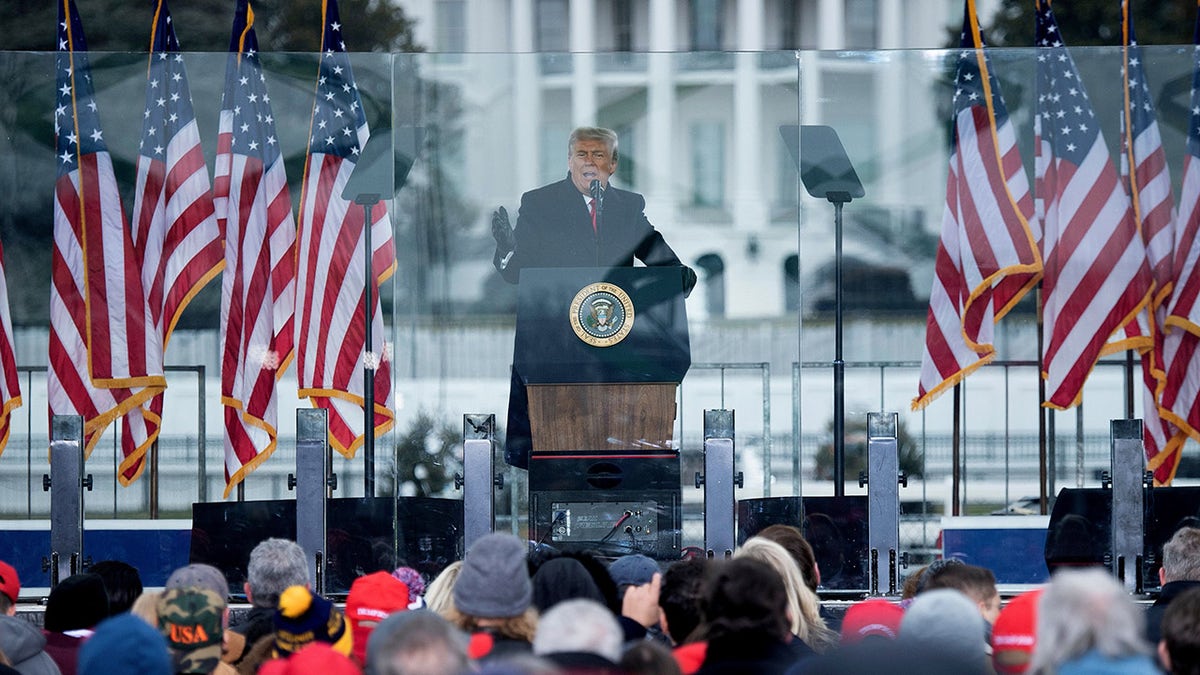
US President Donald Trump speaks to supporters from The Ellipse near the White House on January 6, 2021, in Washington, DC. (Photo by Brendan Smialowski / AFP) (Photo by BRENDAN SMIALOWSKI/AFP via Getty Images) ( (Photo by Brendan Smialowski / AFP) (Photo by BRENDAN SMIALOWSKI/AFP via Getty Images))
SUBSCRIBE TO HOWIE'S MEDIA BUZZMETER PODCAST, A RIFF OF THE DAY'S HOTTEST STORIES
The media have played a polarizing role, breaking along the usual ideological lines. Some have minimized the Capitol riot, others have played it up as if it’s the biggest story in the land, day after day. Some have portrayed the House investigation as a witch hunt aimed at Trump, others have tried to excuse the likes of Mark Meadows and Steve Bannon defying lawful subpoenas.
But even journalists who have tried to follow a just-the-facts approach find that both sides are clinging to their versions, that January 6th was either a poorly executed coup or an overzealous tourist visit.
And that is a twin tragedy that continues to pollute our politics a year later.








